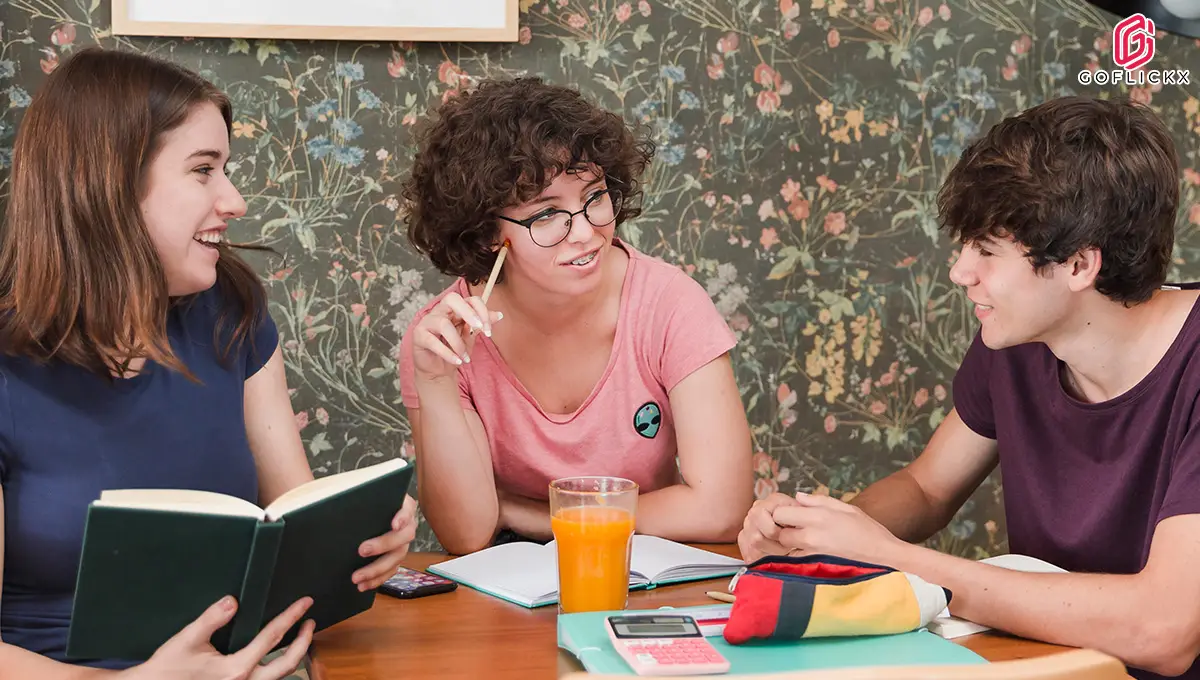Talk Smart, Not Hard: Effective Communication Strategies That Work!
Communication is not just about talking it is about proper understanding, connecting with each other and growing as well. For students, mastering effective communication strategies makes the difference between confusion and clarity, isolation and inclusion and struggle and success. Whether you are delivering a class presentation or teaming up for the group project, knowing how to express ideas clearly and listen actively can transform your academic experience. In this blog, learn more about the practical tips to improve communication skills in the school, where, while focusing on both speaking and listening, there is no fluff, just real-life, classroom-ready techniques.
How to Develop Strong Communication Skills in School Life
Developing communication strategies isn’t just for speech classes. It’s vital for everyday academic success:
- Plan your messages: Use note cards or outlines before speaking or writing.
- Connect with others: Ask questions, make eye contact and show you care about classmates' ideas.
- Check your tone: Friendly, respectful delivery opens doors especially during debates or disagreements.
Mastering these basics builds confidence, clarity and cooperation.
Strategies to Improve Interpersonal Skills Peer-to-Peer
Navigating group projects or lunchtime chats? Here’s what really helps:
- Mirror body language: Subtly copy the posture, gestures or facial expressions of the person you're talking to. This builds comfort and a sense of connection without being obvious.
- Validate feelings: Use simple affirmations like “I see where you’re coming from” or “That’s a great point” to show you’re not just hearing, but understanding.
- Balance talking and listening: Don’t dominate the conversation. Make room for others to speak and respond thoughtfully. Active listening earns respect and strengthens collaboration.
These strategies to improve interpersonal skills make you a team player.
Better Communication Skills Through Feedback
Want to speak better? Ask for feedback:
- After giving a presentation, request tips: “Did I speak clearly? Too fast”?
- Ask friends if your tone sounded friendly or flat.
Learning from peers and teachers helps you iterate your style and delivery with intention.
Quick Student Communication Strategy Guide
|
Situation |
Strategy |
Benefit |
|
Classroom presentations |
Structure intro-body-conclusion |
Helps audience follow your message |
|
Group discussions |
Ask clarifying questions |
Prevents misunderstandings |
|
One-on-one chats |
Share personal interest first |
Builds rapport |
|
Online study groups |
Use chat emojis & active nods |
Shows engagement without speaking |
This table offers a snapshot of basic communication strategies that make everyday classroom situations smoother and more effective.
Speak & Listen: A Balanced Approach
True communication flows both ways. While sharing ideas is important, effective communication strategies include listening with attention:
- Summarize what you hear. “So you're sayin” ensures clarity.
- Use open-ended questions. “How do you feel about?” invites depth, not yes/no replies.
- Pause after speaking. This shows respect for others' responses and avoids talking over someone.
Real-World Classrooms: Why These Methods Matter
When students learn to improve communication skills, school becomes more engaging:
- Teachers appreciate clear replies.
- Group projects run smoother.
- Classrooms feel safer and more welcoming.
These strategies support academic performance and social confidence, changing the school experience for the better.
Putting It All Together
Here's how you apply this on a typical day:
- Morning prep: Before school talk through your plan what you'll say in class or with friends.
- During class: Use your structure when asking questions or answering. Listen actively.
- Group time: Apply interpersonal strategies validate, mirror, balance the conversation.
- End of day: Reflect what worked? What feedback did you receive? Write it down for next time.
Why It’s Called “Effective Communication Strategies”
These aren’t random tips they’re proven tactics that give your words impact. And when you regularly apply them, you build habits that stick into college and beyond. They help you:
- Reduce anxiety when speaking.
- Connect better with teachers, peers and even family.
- Show leadership and empathy in group settings.
You’re not just talking; you’re shaping your own voice and presence.
Your Voice Matters
Students, this is your world to shape! Implementing effective communication strategies may feel awkward at first, but with practice you’ll amaze yourself. Show up, speak clearly and listen with heart you’ll find doors opening you didn’t even know existed. These techniques can fuel academic confidence and enrich student life. With intention and effort, any student can sharpen their communication and shine brighter in school and beyond. So next time you're expected to speak or share, Remember: you’ve got effective strategies on your side. Speak smart, listen better and let your voice lead the way! Your journey through education is amplified when you speak clearly, listen actively and connect sincerely. By focusing on effective communication strategies, you're not just learning you're standing out. Keep practicing, stay curious and watch how your words build better relationships and stronger futures!
